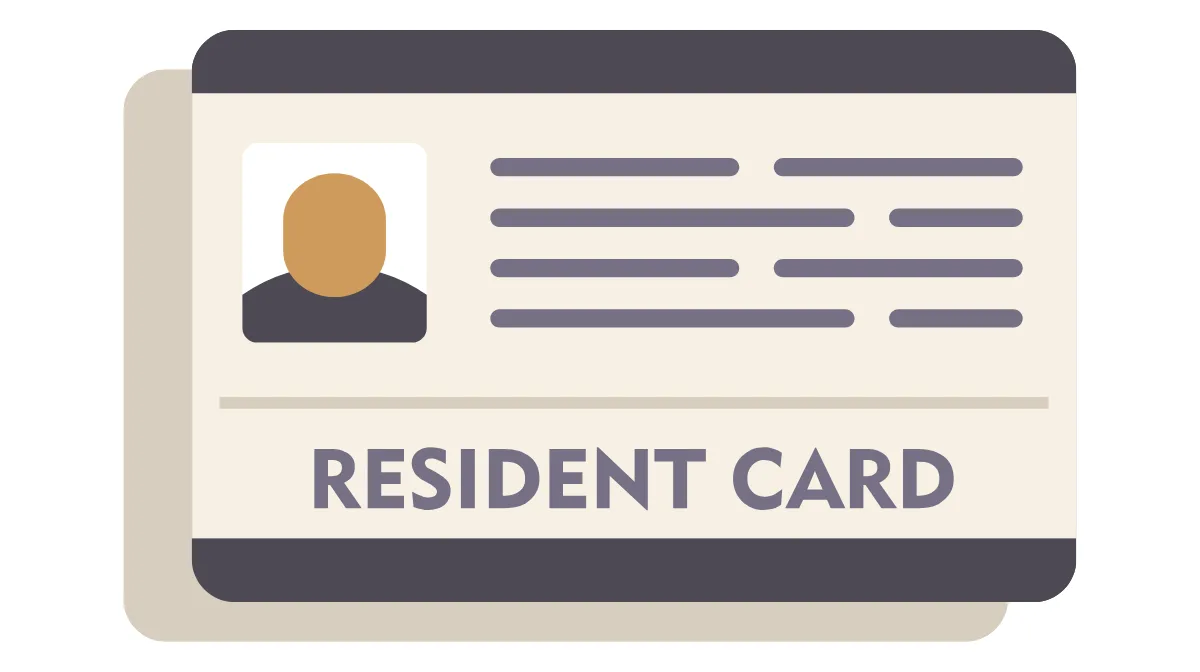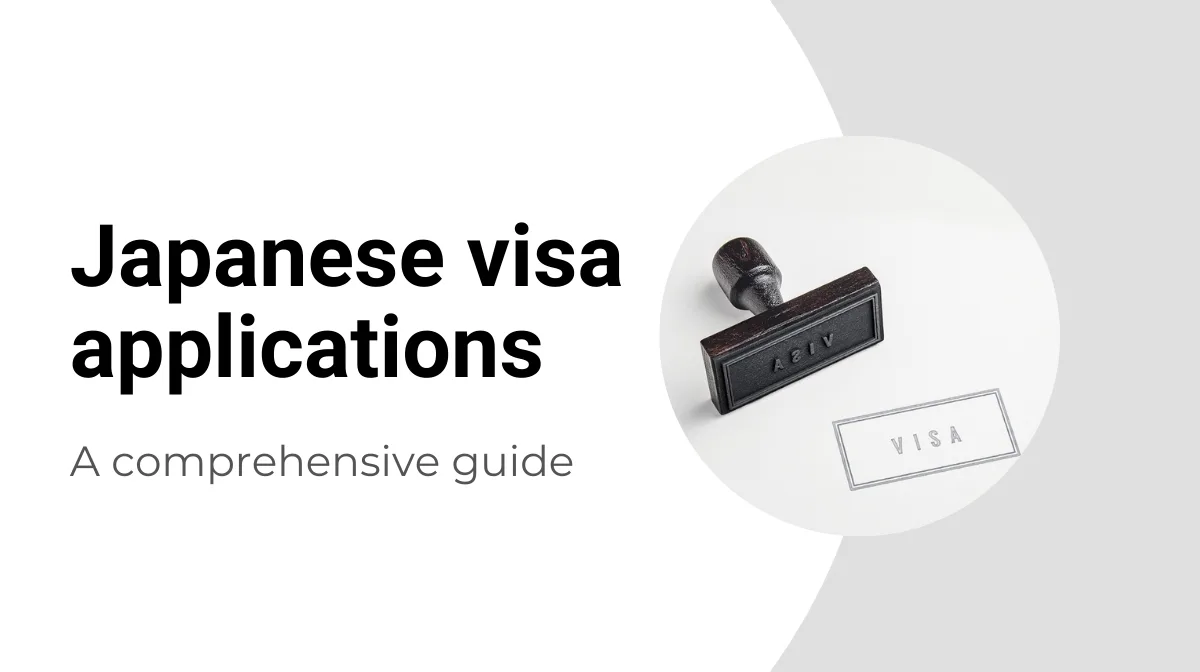Obtaining the appropriate visa is a crucial challenge for IT professionals working in Japan.
Even though people often refer to an “Engineer Visa,” there are actually multiple types, such as the “Engineer/Specialist in Humanities/International Services” visa and the “Highly Skilled Professional” visa.
Each visa has its own unique features and requirements, making it necessary to choose the one that best fits your career plans.
This article will provide a detailed explanation of work visas for IT professionals, including types, application methods, and the process for obtaining permanent residency.
- Types of Japanese work visas for IT professionals
- Application requirements and procedures
- Pathway to permanent residency in Japan
1. Types and Characteristics of Japanese Work Visas for IT Professionals

Foreign nationals aiming to work in Japan as IT professionals need to obtain a visa.
One of the work visas related to IT professionals is the “Engineer Visa,” which is a status of residence for working as an engineer.
This is not an official name but refers to all types of residence statuses that allow one to work as an engineer.
Basic Structure of Japan’s Visa System
Japan’s visa system is complex, with nearly 20 different types of work visas.
For foreign nationals coming to work in Japan for the first time or international students seeking employment, the three main work visas are “Engineer/Specialist in Humanities/International Services,” “Technical Intern Training,” and “Specified Skilled Worker.”
Overview of Available Residence Statuses for IT Professionals
The most common visa for engineers is the “Engineer/Specialist in Humanities/International Services” visa.
This is one of the work-related residence statuses for university graduates who wish to work in fields related to their major studies.
Among the many work-related residence statuses, this one is particularly widely used by foreign nationals. The Engineer Visa falls under the “Engineer” category of this status.
Another obtainable visa is the “Highly Skilled Professional” visa.
This is a residence status designed to attract highly skilled professionals from overseas who can contribute to Japan’s economic development.
This visa is divided into categories 1 and 2, with first-time workers in Japan qualifying for category 1.
Reference: Immigration Services Agency: Status of Residence “Engineer/Specialist in Humanities/International Services” Immigration Services Agency: Points-based System for Highly Skilled Professionals
Range of Permitted Work Activities
Not everyone who gets hired by an IT company qualifies for an Engineer Visa. The job content must specifically be as an “IT engineer” or “technician.”
Even if your employer develops systems, if your job content is “clerical work,” you won’t qualify for an Engineer Visa.
2. Differences Between the Engineer/Specialist in Humanities/International Services Visa and the Highly Skilled Professional Visa

Some people may be wondering whether to obtain the Engineer/Specialist in Humanities/International Services visa or the Highly Skilled Professional visa when planning to get a visa in Japan.
Below, we’ll explain the differences between these two visa types.
Basic Differences Between These Visas
The Engineer/Specialist in Humanities/International Services visa and the Highly Skilled Professional visa differ in terms of period of stay, application requirements, and range of permitted activities.
For the period of stay, the Engineer/Specialist in Humanities/International Services visa can be issued for 5 years, 3 years, 1 year, or 3 months. On the other hand, the Highly Skilled Professional visa (category 1) is fixed at 5 years.
Reference: Immigration Services Agency: Points-based System for Highly Skilled Professionals
Comparison of Application Requirements
For the Engineer/Specialist in Humanities/International Services visa, you need at least an associate degree from overseas or a diploma from a specialized training college in Japan.
However, even if you don’t meet these educational requirements, you can still apply if you have 10 or more years of practical experience.
There’s also a salary requirement stipulating that you must receive compensation equivalent to or higher than what a Japanese national would receive for the same work.
There is no Japanese language requirement, but depending on the job content (such as interpreter), N2 level or higher might be required.
In contrast, the Highly Skilled Professional visa uses a points-based system. You can apply if you score 70 points or more on the Highly Skilled Professional points calculation table.
Points are added based on education, work experience, annual income, age, and other factors. Like the Engineer/Specialist in Humanities/International Services visa, there is no Japanese language requirement. However, having certain qualifications may add points.
Reference: Ministry of Justice: Points Calculation Table ・Japanese Language Proficiency Test (JLPT)
Differences in Permitted Activities
Activities That Fall Under the Engineer/Specialist in Humanities/International Services Visa
- Fields of natural sciences such as physical science and engineering
- Work requiring knowledge in humanities such as law, economics, or sociology
- Activities involving work that requires thinking or sensitivity based on foreign cultures
Job examples: Engineers in mechanical engineering, designers, interpreters, etc.
The range of activities for the Highly Skilled Professional visa (category 1) is basically the same as that of the Engineer/Specialist in Humanities/International Services visa.
However, international services are not included in the range of activities. Additionally, obtaining a Highly Skilled Professional visa allows you to manage businesses related to your field of activity.
Reference: Immigration Services Agency: Engineer/Specialist in Humanities/International Services
■日本でエンジニアとしてキャリアアップしたい方へ
海外エンジニア転職支援サービス『 Bloomtech Career 』にご相談ください。「英語OK」「ビザサポートあり」「高年収企業」など、外国人エンジニア向けの求人を多数掲載。専任のキャリアアドバイザーが、あなたのスキル・希望に合った最適な日本企業をご紹介します。
▼簡単・無料!30秒で登録完了!まずはお気軽にご連絡ください!
Bloomtech Careerに無料相談してみる
3. Educational and Professional Requirements for IT Professionals’ Residence Status and Utilization of the Points System

We’ve explained the differences between the often-confused Engineer/Specialist in Humanities/International Services visa and the Highly Skilled Professional visa (category 1).
Below, we’ll go into more detail about the educational and professional requirements for IT professionals’ residence status and how to utilize the points system.
Details of Educational Requirements
To obtain the “Engineer/Specialist in Humanities/International Services” residence status, which is common for engineers, you need to meet one of the following educational requirements:
- Having graduated from a university with a major in a subject related to technology or knowledge in natural sciences or humanities
- Having completed a specialized course at a specialized training college in Japan with a major in a subject related to technology or knowledge in natural sciences or humanities (limited to those who have been given the title of “specialist” or “advanced specialist”)
Cases Where Points Are Added for the Highly Skilled Professional Visa (Regarding Education)
- Doctoral or master’s degree
- University graduate or equivalent education
- Multiple degrees in multiple fields
Details of Professional Experience Requirements
If you don’t meet the above educational requirements for the “Engineer/Specialist in Humanities/International Services” visa, you can still apply if you have 10 or more years of practical experience (including periods of study in related subjects at a university).
Regarding salary requirements, you need to receive compensation equivalent to or higher than what a Japanese national would receive for the same work.
For the Highly Skilled Professional visa (in the advanced specialized/technical field), points are added for professional experience of 3 years or more, 5 years or more, 7 years or more, and 10 years or more.
How to Utilize the Highly Skilled Professional Points System
For the Highly Skilled Professional visa, you need to score a total of 70 points or more from various evaluation criteria such as education, work experience, and annual income.
If you know what conditions add points, you can efficiently meet the application requirements for the Highly Skilled Professional visa. Make good use of the points system.
4. Career Planning for Extending Period of Stay and Obtaining Permanent Residency

Many people may have questions like “I want to know about extending my period of stay” or “I’d like to obtain permanent residency eventually, but what’s the application process?”
Below, we’ll explain career planning for extending your period of stay and obtaining permanent residency.
Basic Requirements for Extending Period of Stay
To extend your period of stay, you need to submit an application form and documents related to your activities in Japan.
Additionally, there are requirements such as having good behavior, having assets sufficient to maintain an independent livelihood, and having appropriate employment and labor conditions. Make sure to check the details in advance.
In principle, an application for permission to extend the period of stay should be submitted before the expiration of the current period of stay. If you have a period of stay of 6 months or more, you can apply from about 3 months before the expiration date.
You can submit your application to the regional immigration bureau that has jurisdiction over your place of residence, or you can also apply online.
Reference: Immigration Services Agency: Change of Status of Residence/Extension of Period of Stay
Roadmap to Permanent Residency Application
Here’s the general process for applying for permanent residency
- Change of Status of Residence
If you hold a Specified Skilled Worker (i) status and need to change to Specified Skilled Worker (ii), you’ll need to go through this procedure. Transitioning to Specified Skilled Worker (ii) allows for long-term stay toward obtaining permanent residency. - Confirmation of Permanent Residency Requirements
Requirements for obtaining permanent residency differ depending on your status of residence, such as general work visas like Engineer/Specialist in Humanities/International Services, Highly Skilled Professional visa, Dependent visa, or Spouse of Japanese National. For length of stay in Japan, general work visas require 10 years, while Highly Skilled Professional visas require 1-3 years. - Document Preparation
For permanent residency application, you need to prepare many documents, starting with the Permanent Residency Application Form. Specifically, you’ll need a certificate of residence, tax payment certificate, income certificate, and so on. You must prepare all required documents without omission. - Submission of Application Forms
The prepared documents should be submitted to the immigration bureau. When submitting, make sure there are no deficiencies in the documents. - Review and Notification of Results
After application, the review usually takes several months to a year. If the application is approved, you’ll need to complete procedures at the immigration bureau, which includes a fee (8,000 yen).
Requirements for IT Professionals to Obtain Permanent Residency
Here are the requirements for IT professionals who want to obtain permanent residency
If you’re working in Japan with an Engineer/Specialist in Humanities/International Services visa
In principle, you need to have been residing in Japan for at least 10 years and have been working for the last 5 years leading up to the permanent residency application. However, requirements may be relaxed if your spouse is a Japanese national or permanent resident.
Additionally, you need to meet requirements such as having good conduct, having assets sufficient to lead a stable life, not having received fines or imprisonment, and having paid taxes.
Reference: Immigration Services Agency: Permanent Residency Permission
■日本でエンジニアとしてキャリアアップしたい方へ
海外エンジニア転職支援サービス『 Bloomtech Career 』にご相談ください。「英語OK」「ビザサポートあり」「高年収企業」など、外国人エンジニア向けの求人を多数掲載。専任のキャリアアドバイザーが、あなたのスキル・希望に合った最適な日本企業をご紹介します。
▼簡単・無料!30秒で登録完了!まずはお気軽にご連絡ください!
Bloomtech Careerに無料相談してみる
5. Practical Points and Required Documents for IT Professionals’ Visa Application

We’ll explain the practical points and required documents for IT professionals’ visa application.
Basic Flow of Application Procedures
There are two possible scenarios for visa application
- Coming to Japan from abroad as a foreign engineer
- Already having another status of residence but changing to an Engineer Visa
Here, we’ll outline the basic flow of application procedures assuming “Coming to Japan from abroad as a foreign engineer”
- Enter into an employment contract with a company
You need to enter into an employment contract with a company and have them issue an employment contract document. - Apply for a Certificate of Eligibility
If the worker is overseas, a proxy or the employing company can apply on their behalf and send the received certificate to the person. This procedure typically takes about a month on average, but it can sometimes take 2-3 months. - Apply for a visa
After receiving the Certificate of Eligibility, apply for a visa at a Japanese diplomatic mission (embassy or consulate, etc.) in your country. Submission of the Certificate of Eligibility is almost mandatory at this stage. - Enter Japan
Once the visa is issued, you can enter Japan within the validity period of the Certificate of Eligibility (generally within 3 months from issuance). You need to submit your passport, visa, and Certificate of Eligibility. - Issuance of Residence Card
After your entry is permitted, a residence card will be issued. Check the residence card as it states your status of residence and period of validity. After receiving the residence card, you can start working.
Detailed List of Required Documents
Applying for an Engineer Visa requires preparation and submission of many documents.
For those wishing to enter Japan for the first time with this status of residence, categories are divided according to affiliated organizations, and required documents differ.
However, the following documents are commonly required for all categories
Essential Basic Documents
Certificate of Eligibility Application Form, photo, return envelope, passport
Be sure to carefully prepare other necessary documents, as these will vary based on individual circumstances.
Reference: Ministry of Foreign Affairs: Work Visa
Application Cautions and Schedule
Let’s check the cautions when applying for an Engineer Visa.
First, confirm that your practical experience is related to your job content. Next, prove that you have sufficient workload.
Since the range of job content is specified, you must prove that you can sufficiently engage in work that meets those requirements after joining the company.
Finally, check the preparation period and validity of application documents. All application documents are, in principle, valid for up to 3 months from acquisition. Just filling out the necessary documents takes time and effort.
Visa application, including various procedures, typically takes 1-3 months. Since there are documents that need to be issued by your prospective employer, it’s advisable to make a schedule with plenty of time to spare.
6. Carefully Check the Type of Japanese Visa You Need
For IT professionals working in Japan, selecting and obtaining the appropriate visa is essential. The Engineer/Specialist in Humanities/International Services visa and the Highly Skilled Professional visa each have different characteristics and requirements.
When applying, it’s important to determine which visa is optimal by considering your educational background, work experience, and future career plans.
If you’re considering obtaining permanent residency, we recommend starting preparations early and planning strategically.

















